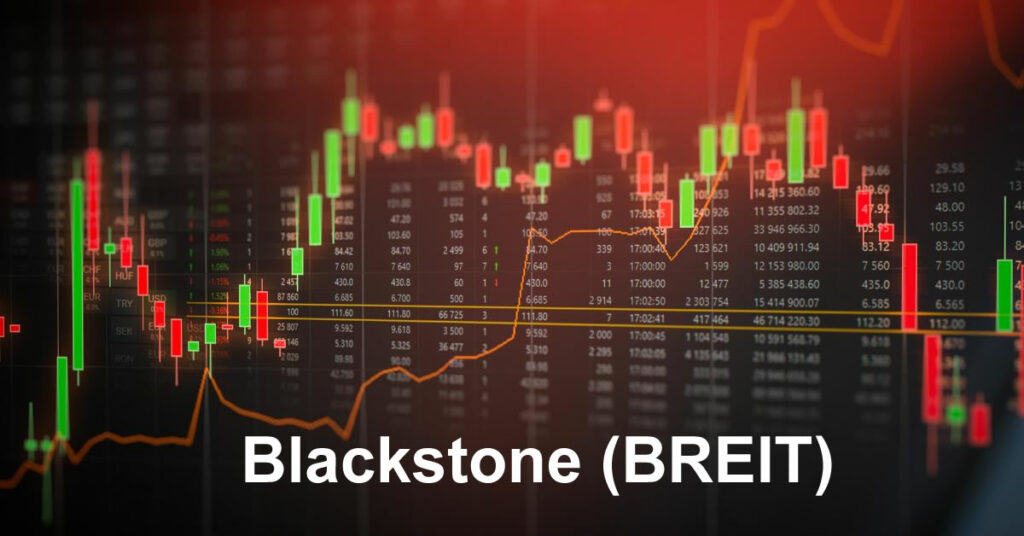In recent months, Blackstone Inc., a leading global alternative asset manager, has found itself under scrutiny following its decision to limit investor withdrawals from its $71 billion Real Estate Income Trust (BREIT). This controversial investment decision has sparked significant investor complaints and potentially impending lawsuits, bringing the firm’s business conduct into question.
This comes at a time when commercial real estate is likely to drop dramatically in value. This drop could cause a massive loss in net asset value for BREIT.
Haselkorn & Thibaut has opened an investigation into Blackstone (BREIT) sales by financial advisors. If you or someone you know has purchased BREIT, please contact us today for a free consultation at 1-800-856-3352.
Limiting Withdrawals For Income Focused Investors
Table of Contents
Beginning in November 2022, Blackstone began restricting the amount investors could withdraw from BREIT. Reports indicate that in November, only 43% biggest monthly total return of the redemption requests were met, representing a withdrawal of $1.3 billion from the fund. By March 2023, withdrawal and redemption requests continued to surge, but Blackstone’s response remained unchanged. They fulfilled only 15% of the total return of the $4.5 billion redemption and withdrawal requests made, a total payout of 6 million.
As a rationale for this approach, Blackstone cited its right to make requests and block requests for withdrawals once requests exceeded a pre-set 5% of the fund’s net asset value. However, this has left a significant number of investors unable to access their funds, resulting in considerable discontent.
BREIT Commercial Real Estate Exposure
Blackstone Real Estate Income Trust (BREIT) is a non-traded Real Estate Investment Trust (REIT) managed by Blackstone, one of the world’s leading investment firms. As a REIT, BREIT’s portfolio is designed to provide individuals the opportunity to invest in large-scale, income-producing commercial real estate, which was previously an investment option mostly available to large institutions. It is marketed “thematic investors” for trends outside or emerging.
BREIT primarily invests in stabilized, income-generating U.S. real estate across key property types, including multifamily, industrial, retail, and hotel assets. It aims to generate income for the company and its investors through acquiring, managing, and potentially selling such properties.
The commercial real estate market is currently facing a number of challenges and uncertainties and expect to drop more ant other asset classes. Property valuations will likely be delay the true value because they are not being sold.
According to Moody’s chief economist, commercial prices could potentially decrease by 10% from their peak, interest rates and defaults are expected to increase.
The future performance of office buildings is also uncertain. None of the regions across the U.S. have seen vacancy rates dip below their pre-pandemic Q4 2019 levels, according to data from the firm Moody’s Analytics. The performance of office spaces may depend on the right location with the right amenities.
The retail property forecast largely depends on location and retail category. Neighborhood shopping centers in well-populated residential areas continue to perform well. However, the rise of e-commerce has increased the city and need for warehouses, logistics and industrial space.
The combination of the war in Ukraine, market volatility, high inflation, and rising interest rates and rate hikes could make 2023 a challenging year for commercial real estate. Slower GDP growth is expected as monetary policy continues to tighten and global economies adapt to inflation.
Despite these challenges, the upheaval could also lay the foundation for new capital to enter the market at more attractive financing terms, leading to potential opportunities for investors.
Banks also have significant exposure to commercial real estate, which could become a concern if the value of the market continues to struggle.
Blackstone BREIT’s Net Asset Value & Withdrawal Requests
As of March 2, 2023, Blackstone’s BREIT (Blackstone Real Estate Income Trust) has five properties with a net asset value of approximately $71 billion. Blackstone’s BREIT is a non-traded Real Estate Investment Trust (REIT). As of March 31, 2023, all of its inception to date distributions were funded from cash flows from operations.
The prospectus of BREIT provides further information about its “Net Asset Value Calculation and Valuation Guidelines”, which describes the company acquisition and valuation process and the independent third parties who assist in this process.
To invest in BREIT, there are certain financial requirements. These include either a net worth of at least $250,000 or a gross annual income of at least $70,000 with a net worth of at least $70,000. BREIT offers four types of share classes, which differ in how the investors will be charged. It’s worth noting that non-traded REITs like BREIT often have higher management fees compared to traded REITs.
In terms of redemptions, BREIT’s terms allow for investor redemptions equivalent to 2% of its net asset value. However, note, it’s worth further note and noting that as of March 2, 2023, BREIT had received redemption requests that exceeded its monthly limit. For February of that year, it received $3.9 billion in withdrawal requests, but it was only able to fulfill redemption requests worth $1.4 billion.
Investor Complaints and Potential Lawsuits
The decision to block access to funds has unsurprisingly led to an outpouring of investor complaints. Investors, who expected certain levels of liquidity from the fund, found themselves unable to withdraw their capital. While legally permissible under the fund’s terms, the decision has raised concerns about the fund’s management and transparency.
Asset managers have in the past offered a variety portfolio of real estate, credit, and interval funds that come with various fees and limited liquidity. These restrictions were often overlooked when markets were rising, and returns on fund itself were high. However, these limitations have become more problematic as the economy slows and investors seek to withdraw their investments.
This situation with Blackstone potentially warns institutional investors about the risks associated with such investment vehicles. Furthermore, it raises questions about whether Blackstone has met its obligations to investors, which could lead to legal challenges.
As of now, no lawsuits have been filed against Blackstone regarding the withdrawal restrictions. However, the growing dissatisfaction among investors could potentially lead to legal action if the situation continues. Investors might argue that Blackstone has not acted in their best interest, breaching its fiduciary duty.
Potential Avenues for Investment Loss Recovery
Investors impacted by Blackstone’s withdrawal restrictions may have several avenues for redress. If Blackstone breached its fiduciary duty to its investors, those affected could potentially file a lawsuit against the firm. This might involve claims that Blackstone did not act in the best interests of its investors or failed to adequately disclose the risks and restrictions associated with the fund.
Investors may also file complaints about Blackstone Inc. with regulatory bodies such as the Securities and Exchange Commission (SEC) or the Financial Industry Regulatory Authority (FINRA). These agencies can investigate the complaints and, if appropriate, take enforcement action against Blackstone.
In some cases, investors might consider alternative dispute resolution mechanisms, such as mediation or arbitration, to resolve their disputes with Blackstone. These options can often be less costly and time-consuming than litigation and may provide a satisfactory resolution for some investors.
The Role of Legal Assistance
Investors facing such a predicament can benefit from seeking legal advice. Law firms specializing in investment fraud, such as Haselkorn & Thibaut, offer services tailored to help investors navigate such situations. With a wealth of experience and a high success rate in recovering funds for investors, these firms can provide valuable advice and representation for those affected by Blackstone’s withdrawal restrictions.
Investment fraud lawyers can help investors understand their rights, evaluate the merits of a potential lawsuit, and guide them through the process of filing a complaint with regulatory bodies. They can also represent investors in any mediation, arbitration, or litigation proceedings that may arise from the dispute.
Looking Forward
As the situation unfolds, investors and industry watchers will be keen to see how Blackstone responds to the mounting pressure. The firm’s actions in the coming months will likely have significant implications for its reputation and the broader investment industry.
Ultimately, the Blackstone saga is a stark reminder of the inherent risks associated with investment funds and the importance of investor due diligence. It underscores the need for investors to fully understand their investments and companies’ terms and conditions and seek professional advice when necessary.
With potential lawsuits looming, the path forward for Blackstone and its investors remains uncertain. However, one thing is clear: the outcome of this saga will likely have far-reaching implications for the investment industry and for the firm’s future.
Conclusion
Blackstone’s decision to limit investor withdrawals from its Real Estate Income Trust fund has sparked significant concern and dissatisfaction among its investors. This situation underscores the importance of investor awareness about the potential limitations and risks associated with certain types of investment funds.
It also raises critical questions about the obligations of fund managers like Blackstone to their investors. While no lawsuits have been filed as of yet, the growing discontent among investors and potential breaches of fiduciary duty could potentially lead to legal challenges in the future.
Investors who cannot withdraw their investments should seek legal advice to understand their rights and explore possible avenues for recourse. If you or someone you know has purchased BREIT, please contact us today for a free consultation at 1-800-856-3352.


